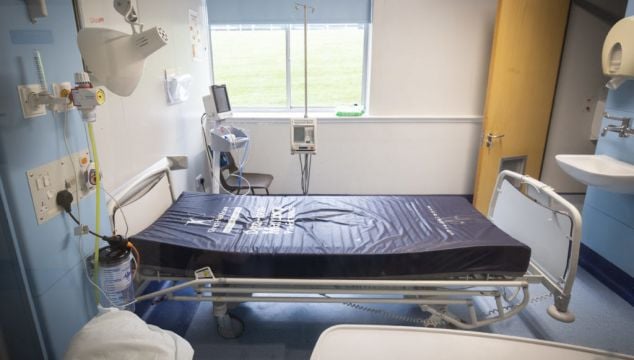Eight out of 10 psychiatrists working with children and teenagers in Ireland have reported increased stress levels at work since a controversy over the care provided by the Children and Adolescent Mental Health Services in south Kerry.
Two-thirds of the psychiatrists described their workload as “unmanageable.”
A study published in the latest edition of the Irish Medical Journal also revealed that two-thirds of psychiatrists treating young people have reported a decrease in motivation since the publication of a review into care provided by South Kerry CAMHS.
The review, which examined the cases of 1,300 young people who accessed CAMHS in south Kerry between July 2016 and June 2020, found it did not meet the expected standards in relation to 240 patients as well as causing significant harm to 46 children and teenagers.
The review by UK consultant psychiatrist, Sean Maskey, identified contributory facts as clinicians’ long working hours, unequal workloads among members of multidisciplinary teams and overall poor staffing levels.
A subsequent all-Ireland review of CAMHS by the Mental Health Commission identified similar issues nationwide.
A State compensation scheme was also established following publication of the review in January 2022 for patients in south Kerry affected by poor care.
Last week the High Court approved a settlement of €110,000 for a boy with autism who “turned into a violent individual” after being given anti-psychotic drugs for three years while undergoing treatment at South Kerry CAMHS.
Researchers from UCD’s School of Medicine and Children’s Hospital Ireland at Crumlin conducted a survey of all senior registrars and consultants in CAMHS about changes to their motivation and stress levels following publication of the review.
Almost two-thirds of the 160 psychiatrists working with CAMHS responded to the study.
The survey showed that the majority felt that the perception of CAMHS by both patients and caregivers as well as the wider public had worsened following publication of the Maskey review.
Almost 9 out of 10 psychiatrists felt media reporting of the issue in south Kerry was imbalanced and overwhelmingly negative.
More than three-quarters claimed staffing levels in their workplace were below average, while approximately 60% claimed there was unfair equity of workload in their area.
The study noted that inadequate resourcing and staff retention problems have been a long-term issue with CAMHS.
It said the results of the survey showed there was a significant association between decreased motivation following publication of the Maskey review and increased stress levels at work as well as unmanageable workloads.
The study said its findings were “concerning” as there were already significant challenges regarding recruitment and retention of psychiatrists in Ireland.
“This is of concern given the known association between low morale, high stress levels and clinical errors,” said one of the report’s co-authors, Laura Bond.
“CAMHS cannot afford further losses of clinicians and it is important these underlying and potentially aggravating factors are addressed for a safe and effective service for young people,” said Dr Bond.
She said the study’s findings appeared to confirm the results of other research which showed negative media coverage can also affect the motivation of doctors.
Dr Bond expressed concern that the worsening view of CAMHS by patients, caregivers and the public could lead to non-adherence to treatment and dropout from care as well as clinician burnout.
She claimed the findings confirmed a strong link between increased stress, decreased motivation and unmanageable workloads as well as low staffing levels.
“This suggests a toxic cycle between psychiatrists taking on additional work to account for the low staffing issues, increasing stress levels, reducing motivation, possibly leading to either sick leave or intention to change jobs as has been reported by over 60 per cent of psychiatrists in prior studies,” said Dr Bond.
She noted the Mental Health Commission had said staffing issues were unlikely to be resolved unless incentives for better training and research opportunities, career progression and supportive management were provided.







